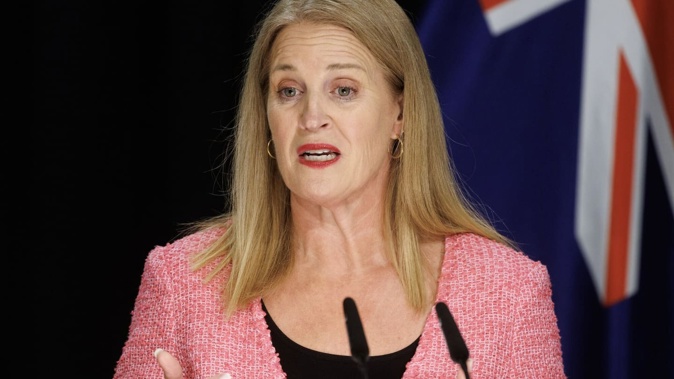
New rules come into force for job seekers today as the Government continues efforts to get more young people off a benefit and into work.
The latest welfare sanctions expand on the earlier rules announced in May, targeting beneficiaries with money management and community work sanctions if they fail to meet one of their obligations, which involve preparing for or looking for work.
Social Development and Employment Minister Louise Upston has announced that from today, beneficiaries failing an obligation for the first time will face two new rules.
They are to undertake and report on a minimum of three job-search activities every week for four weeks and there is now a requirement to attend and participate in one or more employment-related training courses or programmes for a minimum of five hours per week over four weeks.
The two non-financial sanctions will operate under a traffic light system.
Upston said reporting job search activities would increase accountability for beneficiaries who are meant to be looking for work and the upskilling requirement supports beneficiaries to build the skills they need to get into work.

Louise Upston said most jobseekers are committed to finding work.
The Ministry of Social Development (MSD) will consider a client’s circumstances before imposing a non-financial sanction, to ensure it is the most appropriate option for the client.
Upston said job seekers will need to provide evidence of their activity at the end of their sanction period to return to the “green” setting of the traffic light system.
“These obligations were passed by Parliament in May and they aren’t unduly onerous – they’re basic expectations. They reinforce accountability for those failing to meet their obligations, while also recognising that reducing benefits isn’t the answer for everyone,“ she said.
“It’s also important to reinforce that the vast majority of job seekers are fulfilling their obligations, with less than 2% at the red or orange settings. The 98.5% of job seekers at green are committed to finding work and MSD is fully committed to supporting them to do so.
“If that’s the case, people won’t face sanctions, financial or otherwise.”
In May, Upston announced people on a main benefit such as Jobseeker Support could be hit with money management and community work sanctions if they fail to meet one of their obligations, which involve preparing for or looking for work.
The money management sanction would mean half of a person’s benefit would be put on a payment card for four weeks and could only be used at approved shops for groceries, transport, health and education-related items.
The other sanction introduced in May would require people to complete at least five hours of community work experience per week for four weeks.
Upston said the Government was focused on reducing benefit dependency in young people and had already introduced several initiatives, such as a phone-based employment case-management service.
“We’ve got 4000 places for young people to get community job coaching. We’ve also got more regular work seminars and a traffic light system to help them stay on track with their benefit obligations.
“We have also announced that if parents can support their 18- [and] 19-year-olds, they should, and a $1000 bonus for those who stay off the benefit for more than a year.
“Overall, all these changes are about ensuring a welfare system which proactively supports those who can work to get off the benefit and into employment, contributing to the Government’s target to have 50,000 fewer people on Jobseeker Support by 2030.
“From a wider perspective, we know economic times continue to be challenging, but we want people to be ready when jobs come. The traffic light system reinforces that expectation.”
Take your Radio, Podcasts and Music with you









